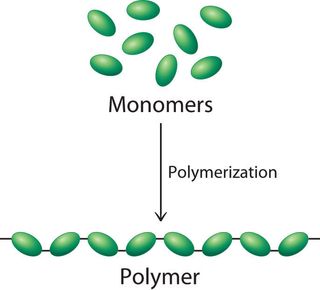Exploring the Varied Applications and Benefits of Polymers in Different Industries
Polymers, with their varied variety of homes and performances, have ended up being important in various markets, each gaining special advantages from their application. From enhancing safety and performance in the automotive market to reinventing medical tools in the health care industry, polymers play a crucial duty.
Automotive Market Applications
Polymers play a critical role in enhancing the efficiency and durability of numerous components within the automotive sector. These versatile materials are extensively made use of in the production of different components, ranging from interior components to under-the-hood applications. One noticeable usage of polymers in the vehicle industry is in the manufacturing of light-weight elements. By replacing standard metal parts with polymer-based choices, lorries can attain enhanced fuel performance without endangering on strength or safety.

Medical Care Sector Benefits
In different healthcare applications, the advantages of using polymers are extensively identified for their varied range of advantageous properties. Polymers play an essential duty in the healthcare industry because of their versatility, biocompatibility, and cost-effectiveness. Among the primary benefits of polymers in medical care is their capability to be tailored to details needs, such as adaptability, durability, and biodegradability, making them excellent for a wide variety of medical applications.
Polymer-based products are extensively used in medical tools, such as catheters, implants, prosthetics, and drug delivery systems, due to their biocompatibility and ability to imitate natural tissues. These products can decrease the risk of allergic reactions or rejections, enhancing person safety and security and end results. Additionally, polymers are light-weight, making them suitable for wearable medical gadgets and ensuring client comfort.
Moreover, polymers enable the advancement of ingenious therapy approaches, such as hydrogels for cells engineering and nanocomposites for targeted medicine shipment. Their simplicity of processing and sanitation makes them necessary for maintaining high criteria of hygiene in health care settings. Overall, the varied advantages of polymers add dramatically to innovations in clinical technology and individual treatment.
Ecological Benefits of Polymers

Additionally, polymers can add to energy financial savings due to their light-weight nature. In industries such as transport, lightweight polymer products can assist decrease fuel intake and greenhouse gas discharges. Additionally, polymers can make it possible for the advancement of energy-efficient products such as insulation materials that boost energy preservation in buildings.
Additionally, polymers play a crucial role in minimizing water pollution. The usage of polymer-based filtering systems can successfully remove pollutants and contaminants from wastewater, safeguarding water sources and environments. Overall, the environmental benefits of polymers make them valuable possessions in promoting sustainability and environment-friendly practices across various industries.
Polymers in Electronic Devices and Innovation
Taking into consideration the enhancing demand for cutting-edge and sustainable remedies in modern-day markets, the assimilation of sophisticated polymer modern technologies in the world of electronic devices and innovation has actually become a pivotal technique for driving efficiency and performance. Polymers have actually revolutionized the electronics sector by making it possible for the production of lighter, a lot more versatile, and durable electronic tools. From mobile phones to medical devices, polymers play a crucial role in improving item design and functionality.
One substantial advantage of polymers in electronic devices is their shielding buildings, which help protect fragile electronic elements from ecological aspects and electric interference. Furthermore, polymers are crucial in the advancement of flexible screens, wearable technology, and printed electronic devices, providing countless opportunities for producing smart and interconnected devices.
Moreover, using polymers in digital packaging has brought about developments in miniaturization and thermal monitoring, boosting the general efficiency and integrity of digital systems. As technology remains to evolve, the flexibility and versatility of polymers will most certainly drive further innovation in the electronics industry, shaping the future of modern technology.
Function of Polymers in Building And Construction and Facilities
The assimilation of innovative polymer materials in building and construction and framework tasks has actually revolutionized the method structures are designed and integrated in modern times. Polymers provide go to website countless advantages in the construction read the article market as a result of their versatility, longevity, and cost-effectiveness. One crucial duty of polymers in building is their usage in finishes and sealants, providing security against ecological variables such as moisture, UV radiation, and rust. Additionally, polymers are utilized in the production of lightweight and high-strength composite products, enhancing the architectural honesty of structures while decreasing overall weight.
Furthermore, polymers play an essential function in sustainable construction techniques by making it possible for the growth of energy-efficient frameworks. Protecting products made from polymers assist regulate indoor temperature levels, decreasing the demand for heating and cooling down systems and inevitably reducing power intake. Moreover, using polymer-based compounds in infrastructure projects such as bridges and roadways enhances their durability and lowers upkeep prices. In general, the unification of polymers in construction and facilities displays their significant effect on modern design techniques.
Conclusion
Finally, polymers play a vital function in various industries such as auto, health care, environmental, electronic devices, and building. Their functional properties make them useful in developing innovative remedies and products. From boosting fuel efficiency in vehicles to boosting clinical gadgets, polymers use many advantages. In addition, their effect on decreasing waste and promoting sustainability highlights their importance in contemporary applications. The prevalent use of polymers shows their significant payment to advancing innovation and enhancing high quality of life.